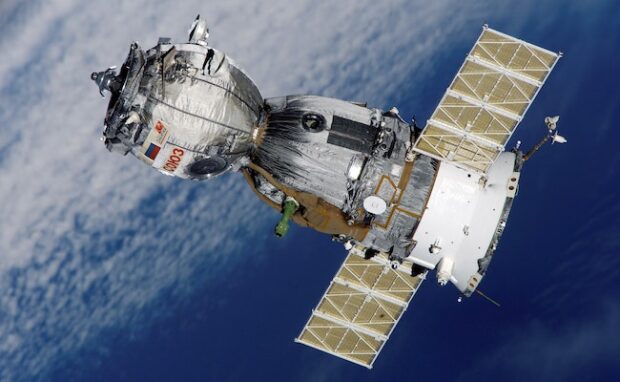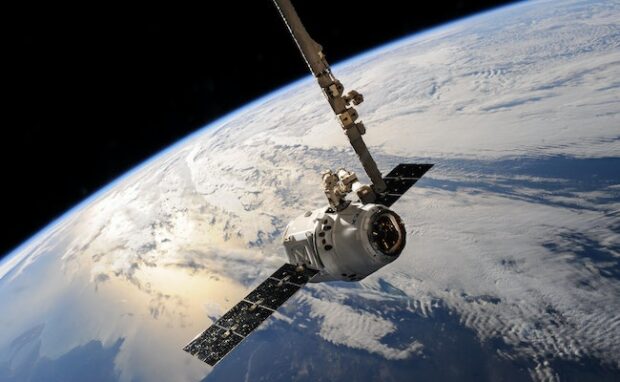Satellites have serious cybersecurity flaws, says a recent study
German scientists discovered satellites have severe cybersecurity risks. Researchers from the Ruhr University Bochum and the CISPA Helmholtz Center for Information Security say these include a lack of data encryption. As a result, hackers could intercept and access data and even crash satellites into the Earth!
Global management consulting firm McKinsey & Company says approximately 7,500 satellites orbit our planet, and we add 50 on average weekly. Moreover, modern life depends on satellite technologies, such as global positioning systems (GPS) for Google Maps and Starlink Internet.
We must understand how these systems can malfunction to prepare for the potential risks. Start by learning more about the latest study about satellites. Later, I will discuss their important functions to emphasize why we must secure these devices.
What are the cybersecurity risks to satellites?
Germany’s Ruhr University Bochum and CISPA Helmholtz Center for Information Security wanted to improve satellite security. Consequently, they studied “three real-world in-orbit satellites to better understand [their] software security.”
Ruhr University Bochum Ph.D. student Johannes Willbold and his team analyzed the ESTCube-1, OPS-SAT, and Flying Laptop. Here are the most serious security risks they discovered:
- Denial of Service & Control: The researchers found it is the most common satellite cyberattack. Denial of Service disables a satellite, and Denial of Control enables a hacker to use its functions.
- Malicious Data Interaction: Attackers can extract flight-critical data and protection secrets. Also, they could take information from its cameras and other devices.
- Seizure of Control: Hackers could fully seize control of an entire satellite instead of its specific components.
The researchers discovered six different vulnerabilities and 13 separate flaws. Also, they surveyed 19 professional satellite engineers and developers to learn about these problems further.
They said three of 17 satellites in the survey have no security measures against third parties controlling satellites. “We focused on providing a functioning system instead of a secure one,” one of the respondents admitted.
Lead researcher Johannes Willbold said space companies follow a philosophy of “achieving security by obscurity.” In other words, people know little about how these firms protect satellites.
Gregory Falco, an assistant professor at Johns Hopkins University, told Wired Space firmware development is a “nightmare” for two reasons. First, it often uses legacy software and rarely updates it.
Second, “The other reason why is because space systems are not built by software developers,” Falco added. “They are built by aerospace engineers, for the most part.”
Why should we protect satellites?
The German study said Seizure of Control could devastate numerous satellites with the Kessler Syndrome. One could crash into another, scattering space debris, destroying other orbital systems, and causing a chain reaction.
Believe it or not, everyone depends on satellites nowadays. They provide important services that hackers could disable if we don’t secure these orbiting machines. Here are the daily functions of modern satellites:
- Global positioning systems: Satellites power location service for mobile apps like Google Maps. Also, GPS gives directions when you drive and guides delivery services.
- Weather forecasting: They are “eyes in the sky” that record footage and capture photos of developing weather conditions. Moreover, they have instruments that predict weather patterns by checking humidity, temperature, and other factors.
- ATM Withdrawals: These orbital devices time ATM transactions to help you withdraw funds immediately.
- Supply chain management: Businesses track worldwide shipping with satellites.
- Safety: Satellites save lives by transmitting emergency SOS signals. For example, the iPhone 14 relies on this technology for its new emergency feature.
- Land stewardship: The Union of Concerned Scientists said these machines detect underground water, minerals, and contaminants to monitor large-scale infrastructure. For example, they check fuel pipeline leaks.
- Internet access: Starlink and similar services provide online connectivity to remote communities. For example, Koronadal Mayor Eliordo Ogena used Starlink to provide internet to indigenous tribes.
Conclusion
German researchers discovered satellites face serious cybersecurity risks. Most lack sufficient measures to prevent hackers from stealing data and taking control.
The researchers say one of the biggest problems is the space companies that prevent experts from checking security. Moreover, Professor Gregory Falco told Wired, “They absolutely are not prioritizing security.”
Governments must enhance cybersecurity for these orbital devices to protect essential services worldwide. Learn more about the latest digital trends at Inquirer Tech.

